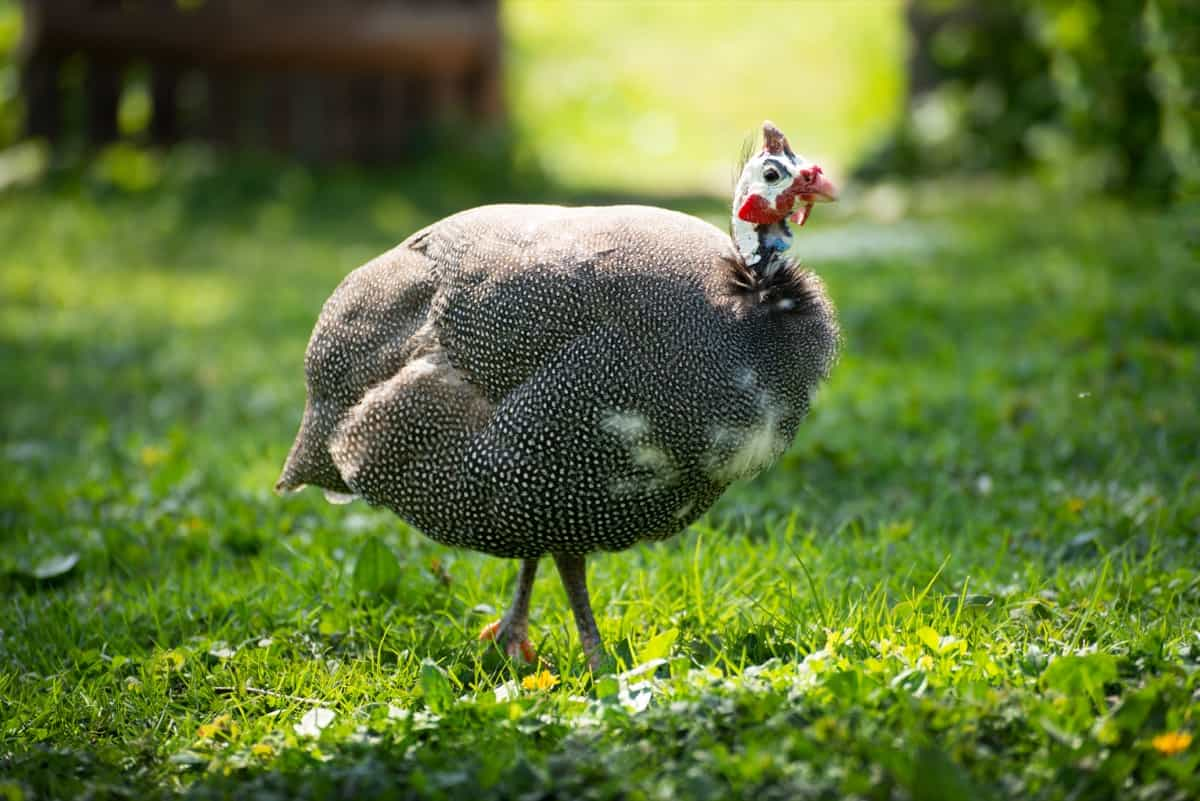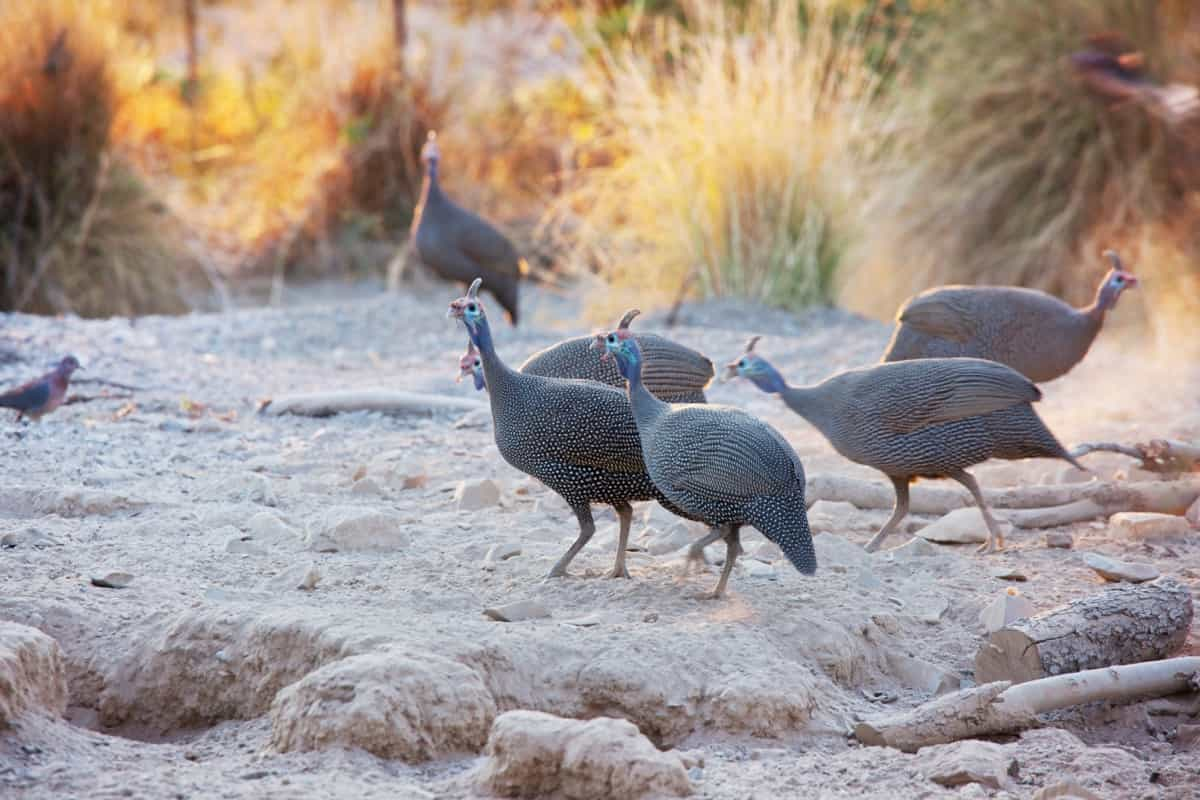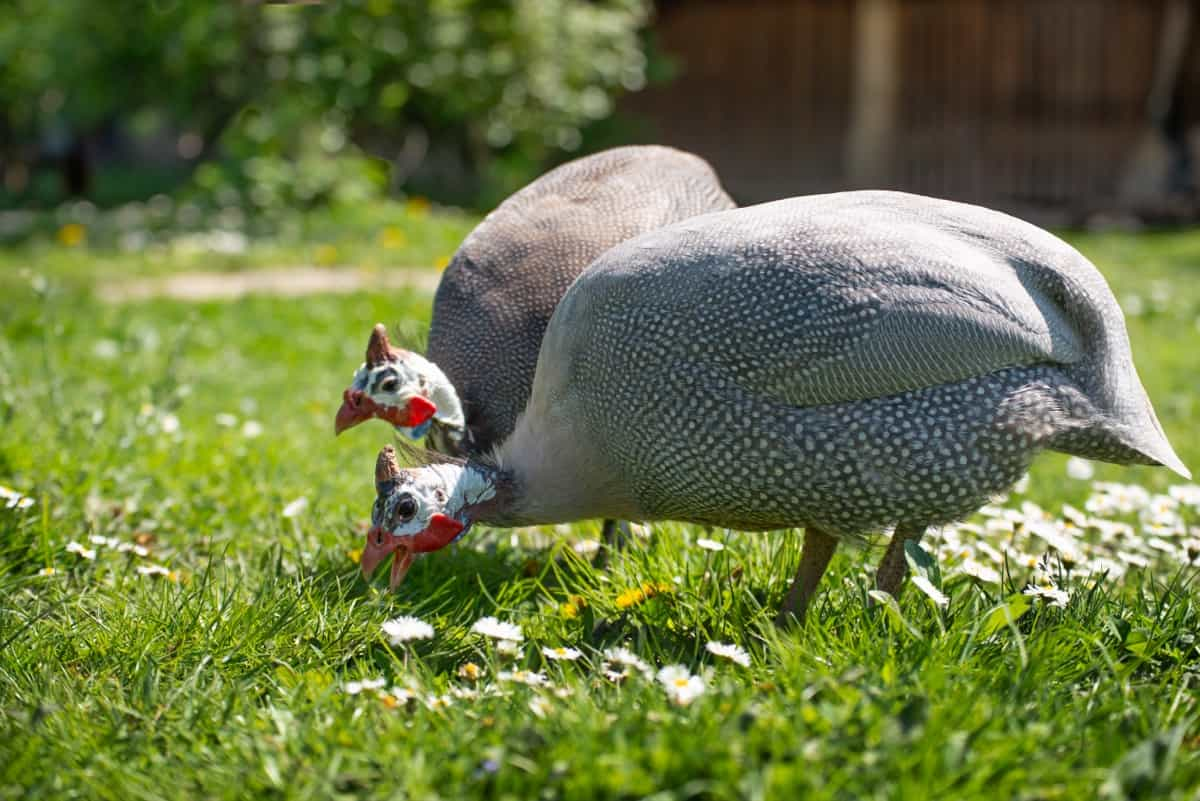Guinea fowl farming is an increasingly popular agricultural activity that involves rearing guinea fowl for meat, eggs, or pets. Raising guinea fowl can be profitable but requires careful planning, management, and monitoring. Farmers must have adequate knowledge of the behavior, nutrition, health management, and breeding of guinea fowl to ensure their productivity and profitability.

In this article, we have outlined ten steps on how to start guinea fowl farming, from researching and planning to expand your farming operation. Below we learn Guinea fowl farming business plan and how to start Guinea Fowl Farming in 10 steps.
How to Start Guinea Fowl Farming in 10 Steps
Research and Planning
Before starting guinea fowl farming, you must thoroughly research to gather information about guinea fowl behavior, nutritional requirements, housing, and diseases. You also need to plan your farming operation, including the number of birds you want to raise, the equipment and facilities you will need, and the market for your products.
Build a Coop
Guinea fowl need a safe and secure shelter to protect them from predators and harsh weather conditions. You can build a coop using locally available materials or purchase pre-made ones. The coop should be well-ventilated and have enough space for the birds to move around.
Purchase Guinea Fowl
You can purchase guinea fowl from local breeders or online stores. Before purchasing, ensure that the birds are healthy and free from diseases. Guinea fowl chicks are fragile, so it’s crucial to provide them with a warm and safe environment, such as a brooder until they are strong enough to move to the coop.
Provide Adequate Nutrition
Guinea fowl require a balanced diet of proteins, minerals, and vitamins. You can feed them commercial poultry or create your own feed mix using locally available grains, vegetables, and animal protein sources. Provide them with clean and fresh water daily.
Health Management
Maintaining the health of your guinea fowl is crucial for their growth and productivity. You can prevent diseases by practicing good hygiene, providing clean water and feed, and keeping the coop clean and dry. Vaccinate your birds against common poultry diseases, and have a veterinarian on call to treat sick birds.
Manage Breeding and Hatching
If you plan to breed guinea fowl, ensure you have both male and female birds in your flock. Guinea fowl are seasonal breeders, so they will only lay eggs during specific times of the year. Provide nesting boxes in the coop to encourage them to lay and collect eggs daily. You can hatch the eggs naturally or use an incubator.
Provide Adequate Space
Guinea fowl require adequate space to move around and exercise. As a rule of thumb, you should give each bird at least 4 square feet of space in the coop and 10 square feet outside. Ensure the outdoor space is fenced and secure to prevent the birds from wandering off or being attacked by predators.
In case you missed it: How to Start Holstein Friesian Cow Farming in 10 Steps

Market Your Products
Once your guinea fowl are ready for sale, you must find a market for your products. You can sell your birds for meat or as pets, and their eggs can be sold for consumption or hatching. Consider selling your products at local farmer’s markets, online stores, or directly to restaurants or consumers.
Monitor and Maintain Records
Monitoring the performance of your guinea fowl flock is crucial to identifying any issues and making necessary adjustments. Keep records of egg production, growth rates, feed consumption, and expenses to track the profitability of your farming operation.
Expand Your Farming Operation
Once you have gained experience and success in guinea fowl farming, you can consider expanding your farming operation. You can increase the size of your flock, invest in better equipment and facilities, or diversify your farming operation by adding other livestock or crops. Continuously educate yourself about the latest trends and techniques in guinea fowl farming to improve your farming operation.
In case you missed it: How to Start Horse Farming in 10 Steps: Business Plan, Management, and Care

Conclusion
Guinea fowl farming is an exciting and rewarding agricultural activity that requires dedication, hard work, and commitment. Following the ten steps outlined in this article will help you start and manage a successful guinea fowl farming operation. With proper planning, management, and marketing, guinea fowl farming can provide a sustainable source of income and contribute to food security in your community.
- Feed Your Flock for Less: Top 10 Tips to Save on Chicken Feed
- Ultimate Guide to Ossabaw Island Hog: Breeding, Raising, Diet, and Care
- Hatching Answers: The Top 10 Reasons Your Chickens Aren’t Laying Eggs
- Eggs and Economics: Breaking Down the Cost of Raising Backyard Chickens
- Defend Your Greens: Proven Methods to Keep Iguanas Out of Your Garden
- Ultimate Guide to Cinnamon Queen Chicken: A Comprehensive Guide for Beginners
- Ultimate Guide to California Tan Chicken: Breeding, Raising, Diet, Egg-Production and Care
- Ultimate Guide to Marsh Daisy Chicken: Breeding, Raising, Diet, and Care
- 10 Types of Chicken Farming Businesses You Can Start for Profits